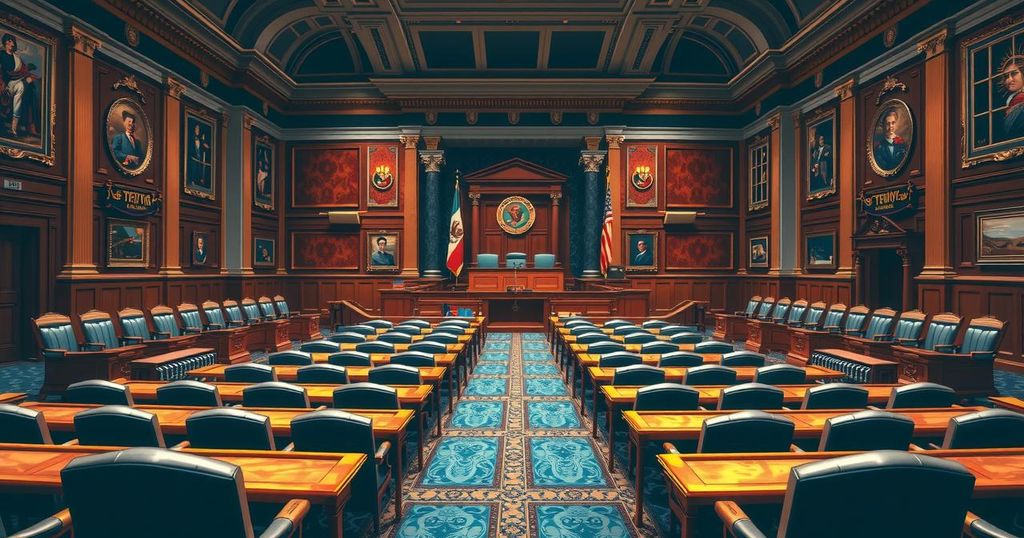Opposition Critiques Modi Government Over U.S. Tariffs on Indian Exports

Opposition leaders are critiquing PM Modi’s government over recently imposed 27% U.S. tariffs on Indian exports, fearing significant economic damage, particularly to the auto, pharmaceutical, and agriculture sectors. Calls for urgent discussions and countermeasures echo across parliament. BJP asserts India’s independence amidst ongoing negotiations with the U.S. to address the tariffs’ effects.
Opposition leaders criticized Prime Minister Narendra Modi and his government after the U.S. imposed a 27% reciprocal tariff on Indian exports. Rahul Gandhi voiced concerns that this move from the Trump administration could severely harm the Indian economy, particularly affecting the auto industry, pharmaceuticals, and agriculture sectors. He called for an explanation from the government about their response to these tariffs during the Lok Sabha’s Zero Hour.
Gandhi highlighted a historical stance taken by his grandmother, former Prime Minister Indira Gandhi, emphasizing the need for a straight posture in foreign policy without leaning to political sides. Congress President Mallikarjun Kharge subsequently accused PM Modi of being caught in a business-driven relationship with the U.S., implying that the Modi administration fell into a diplomatic trap set by the U.S.
Member of Parliament Gaurav Gogoi moved for an adjournment in the Lok Sabha to discuss the economic impacts of the tariffs. He warned the increased tariffs might undermine sectors sensitive to price fluctuations, such as textiles, jewelry, and chemicals, and urged the government to take prompt diplomatic actions to protect Indian exporters.
In the Rajya Sabha, AAP’s Raghav Chadha suggested leveraging Starlink satellite services’ approvals as bargaining leverage to renegotiate tariffs. Chadha predicted a potential GDP loss due to these tariffs, urging the government to reconsider its relations with U.S. entities following the tariff imposition.
Union minister Jyotiraditya Scindia defended the government’s consumer-centric approach, focusing on bringing cutting-edge technology to consumers while ensuring security protocols. He stressed his commitment to provide opportunities to Indian consumers amidst the current diplomatic challenges.
Former Maharashtra Chief Minister Uddhav Thackeray criticized the government for not informing the public about the potential impacts of the tariffs and called for extensive parliamentary discussions. Shiv Sena (UBT) MP Arvind Sawant demanded a firmer government response to U.S. tactics, pointing out the supposed ridicule from the U.S. despite a friendly relationship.
On the other side, BJP leaders defended India’s independent foreign policy, stressing self-reliance. Dinesh Sharma, a BJP Rajya Sabha member, highlighted India’s growing status as a major economy and emphasized that India would respond appropriately to the U.S. tariffs. Praveen Khandelwal confirmed ongoing trade discussions with the U.S. to alleviate the situation while minimizing the impact on India-U.S. trade relations.
The opposition’s united front against the imposition of U.S. tariffs underscores growing concerns about economic stability in India. Leaders like Rahul Gandhi and Uddhav Thackeray emphasize the need for immediate actions and public clarity on governmental strategies to address these tariffs, which are viewed as potentially devastating to key sectors. In response, the ruling BJP asserts India’s independent stance while engaging in ongoing negotiations with the U.S. to mitigate adverse impacts.
Original Source: www.hindustantimes.com







